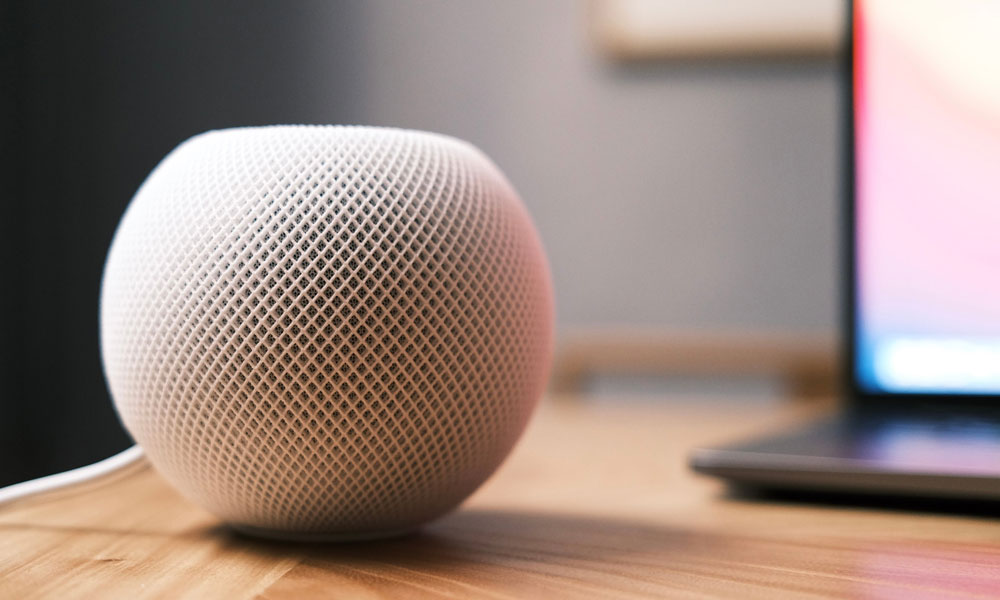Don’t Throw Away Your iPhone 11 Pro Power Adapter — You Can Now Use It to Power Your HomePod Mini
 Credit: Jack Skeens / Shutterstock
Credit: Jack Skeens / Shutterstock
Toggle Dark Mode
Although Apple includes a 20W USB-C power adapter with the new HomePod mini, the good news is that if you’d rather repurpose that adapter to use elsewhere — such as with your new iPhone 12 — you can now use Apple’s older 18W adapter to power your HomePod mini.
Earlier this month Apple pushed out HomePod Software 14.3, and while on the surface it only appeared to add improved multi-user support, The 8-Bit has now discovered another important change that Apple snuck into the last HomePod software update.
Before the 14.3 software release, users who tried to connect the HomePod mini to a lower-power USB-C adapter — like the 18W adapter that Apple included in the box with the iPhone 11 Pro last year — would be met with an orange glowing light that indicated that the HomePod mini could not be powered with that adapter; Apple’s support documents made it clear that a minimum 20W USB-C adapter was required.
Further, you can’t just use any higher-power adapter either — it has to support the 9V power profile, meaning that just like the MagSafe Duo, Apple’s original 29W USB-C power adapter won’t work with the HomePod mini either, despite being rated higher than 20W. This is because the original 29W adapter gets its 29 watts from 14.5V at 2A, while the HomePod mini (and MagSafe Duo) only support 9V power sources.
However, Apple’s 18W USB-C charger does in fact operate at 9V, just as a slightly lower amperage — 2A versus the 2.2A of the 20W adapter. While 0.2A may seem like a really subtle difference, it was enough for the HomePod mini to originally refuse the 18W adapter, but it’s obviously something that Apple was able to tweak in the 14.3 software update, perhaps after realizing that 18W really was enough to power the HomePod mini.
Why This Matters
Since the HomePod mini includes a 20W power adapter anyway, you may think this isn’t really that big of a deal, but since Apple’s iPhone 12 models no longer include a USB-C power adapter in the box, you could save some money by repurposing your HomePod mini adapter to use with your iPhone 12.
The same also holds true for Apple’s MagSafe and MagSafe Duo chargers, which despite their high price tags, not only require you to purchase a power adapter separately, but require that you purchase a 20W+ one for the best charging performance.
If you purchased last year’s iPhone 11 Pro or iPhone 11 Pro Max, however, you already have Apple’s 18W power adapter, and even if you’re trading it in for an iPhone 12, many trade-in programs don’t require you to send the adapter in along with the iPhone to get full trade-in value. This means you can now use that old 18W adapter to power your HomePod mini, and use the 20W adapter from the HomePod mini for your iPhone 12 or Apple’s MagSafe charger to get maximum charging speeds. In other words, you’re basically getting a free iPhone 12 power adapter with your HomePod mini.
The same also holds true if you have other USB-C power adapters around that put out less than 20W, which should work as long as they support the 9V power profile and can deliver at least 18W (2A); while the USB PD spec allows 9V chargers to go as low as 15W, it’s unclear right now if that’s enough for the HomePod mini. Several users on Reddit have confirmed that several other third-party 18W adapters work, and one was even able to use a battery pack to go portable, although nobody appears to have tried a 15W adapter yet.
Even though some folks are cynical about Apple’s claims that it removed the charger from the iPhone this year for environmental reasons, this latest subtle change to the HomePod mini software is clearly also a positive move for the environment; not only would it have to be a deliberate change on Apple’s part, but the company would really have no motivation to do this unless it was genuinely interested in allowing users to repurpose their older USB-C power adapters rather than allowing them to end up in landfills.






